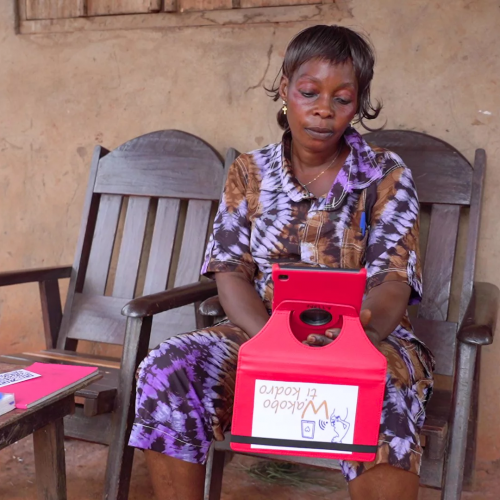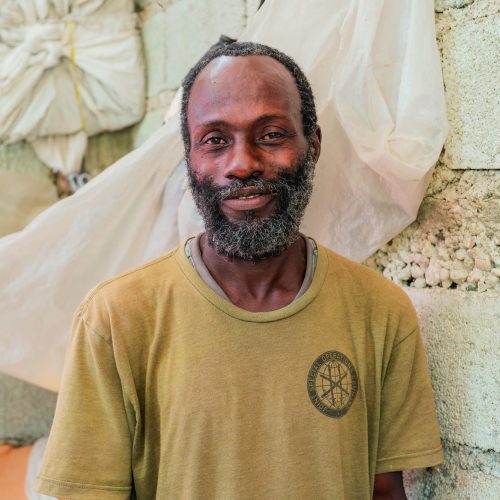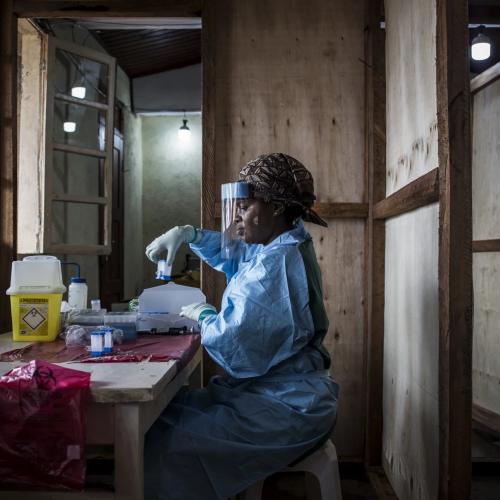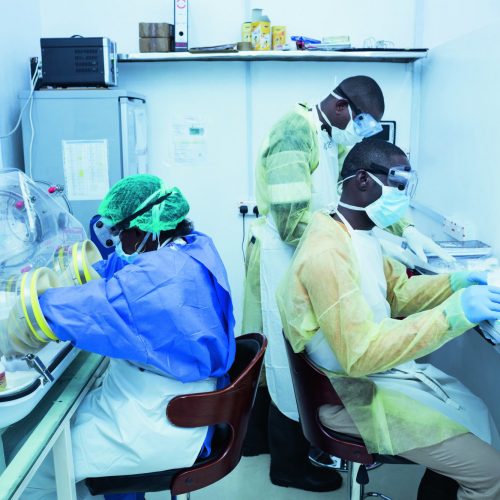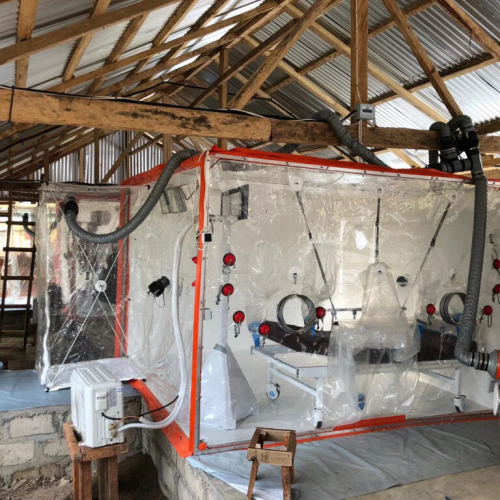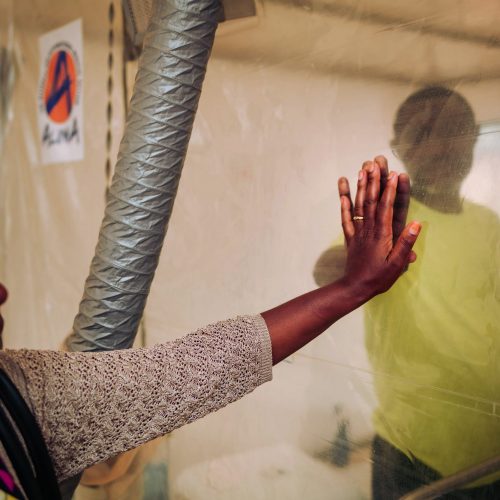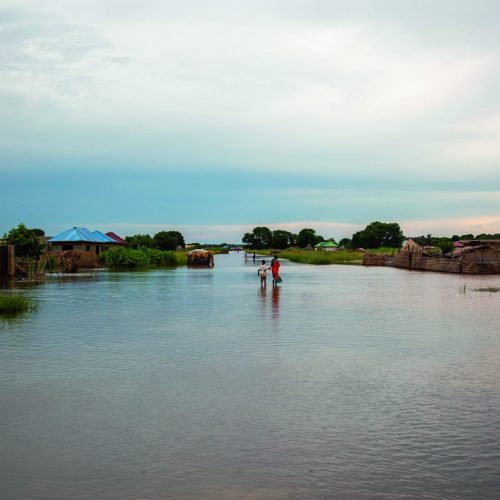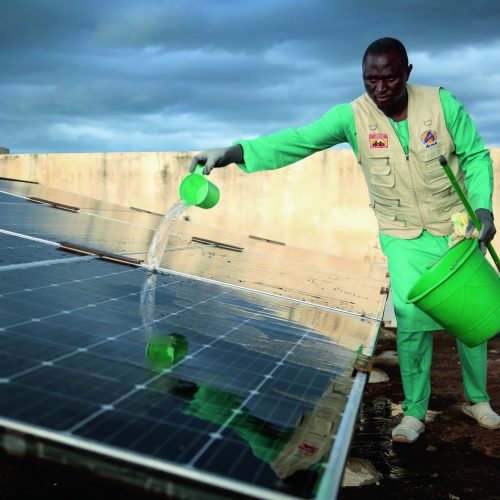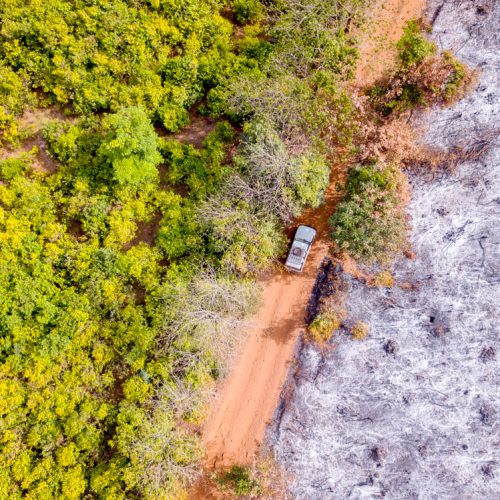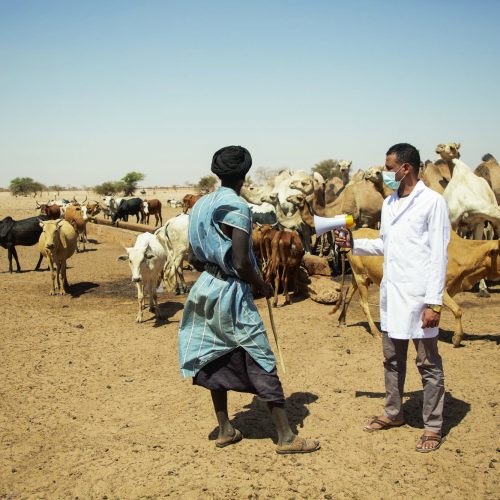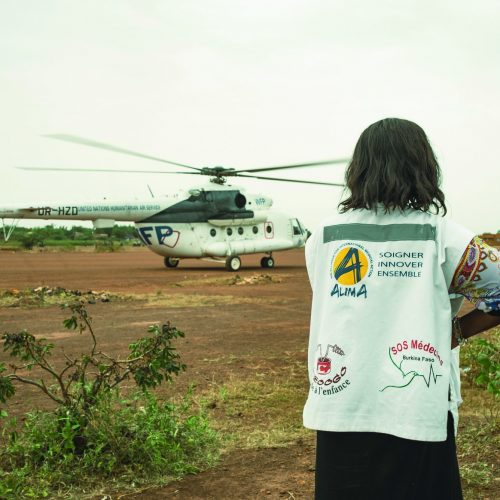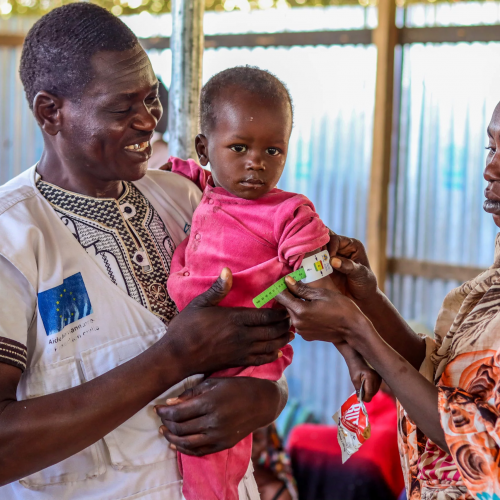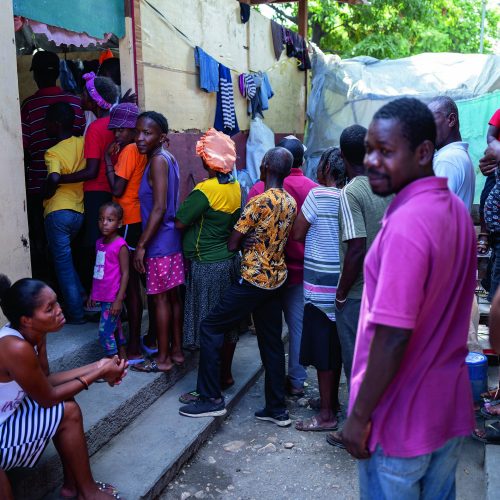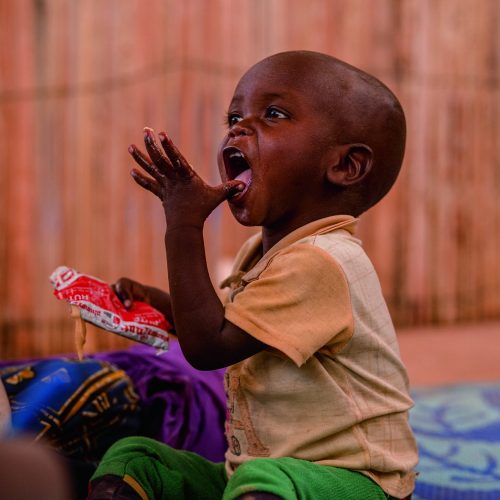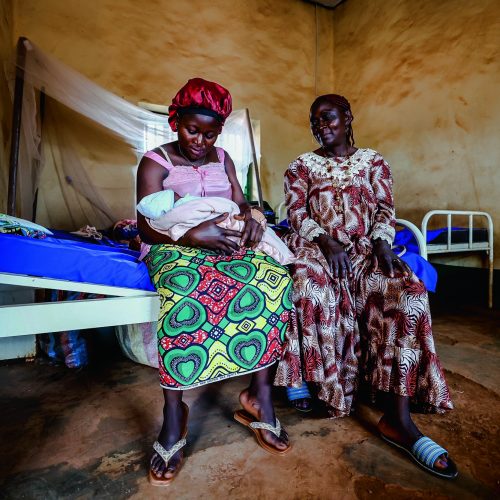Integrate – Fighting Lassa
A Global Alliance Against Lassa Fever.

Lassa fever is a deadly acute viral hemorrhagic fever that kills thousands of people every year in West Africa. Over 900,000 people are infected annually in Benin, Guinea, Liberia, Nigeria, Sierra Leone and Togo*.
Fever, diarrhea, hemorrhaging, and death in severe cases, is what follows after a person is infected by the Lassa virus through food or material contaminated by rodents. It can be transmitted from person to person through contact with infected body fluids. Lassa fever is often difficult to diagnose, and acts with devastating speed, killing people within 14 days of their first symptoms. During Lassa fever outbreaks, the mortality rate ranges from 10 to 30%, with in-hospital mortality at 12%.
Loss of life could be avoided if Lassa fever is diagnosed and treated in time. However, the current recommended treatment drug, ribavirin, is associated with worrying toxicity and is of questionable efficacy. New, more effective, Lassa fever treatment drugs are urgently required.
Lassa fever is one of the most dangerous threats to public health in the region given its epidemic potential, and the WHO has listed it as a priority disease for urgent research and development.
900,000
Lassa virus infections each year across West Africa with over half in Nigeria
181
deaths from Lassa Fever in Nigeria in 2023
10 to 30 %
mortality rate during Lassa fever outbreaks
A pioneering new project to fight Lassa fever
INTEGRATE – A global alliance against Lassa fever – is an international consortium of 15 leading research institutes, health facilities and humanitarian organizations from 10 countries working together to fight Lassa fever.
Coordinated by the medical humanitarian NGO, ALIMA and the CORAL (Clinical and Operational Research Alliance) platform, in collaboration with the Bernhard Nocht Institute for Tropical Medicine (BNITM) and the world’s largest Lassa fever treatment centers – the Irrua Specialist Teaching Hospital (ISTH) and the Federal Medical Center Owo (FMCO) in Nigeria, this pioneering five-year study brings together research structures from West Africa, Europe and the USA.
THE INTEGRATE consortium will:
- Set up a clinical trial platform in West Africa to identify new and more effective drugs to treat Lassa fever and test their efficacy, tolerance and safety.
Starting off in the world’s largest Lassa fever treatment centers – the Irrua Specialist Teaching Hospital (ISTH) and the Federal Medical Center Owo (FMCO) – in Nigeria, INTEGRATE will establish an international clinical trial platform to efficiently test new drug candidates in line with international ethical and scientific standards. Additional clinical study centers will also be set up in other West African countries such as Liberia, Benin, Guinea and a third site in Nigeria in Ebonyi State.
- Build capacity for sustainable clinical research in West Africa through technology transfer and training.
The INTEGRATE project will also strengthen the capacity of West African research and medical facilities to treat Lassa fever patients, and to initiate, plan, implement, and coordinate clinical trials and research on emerging infectious diseases. This will be done by setting up and expanding laboratories, proposing PhD and Masters degree programmes, and creating training materials and workshops. INTEGRATE will establish a multi-country, multicenter network of clinical researchers, laboratory experts, scientific engineers, social science specialists and regional sponsorship capacities in West Africa.
- Raise awareness about Lassa fever within local communities to destigmatize the disease and mitigate future outbreaks.
INTEGRATE will bring together social science researchers, operational experts and local partners with experience in Lassa fever awareness activities to work with local communities to fight misinformation on clinical trials and Lassa fever, destigmatize the disease, and prevent future outbreaks.
INTEGRATE is funded by the European Union’s EDCTP3 programme under the sponsorship of ISTH, and with the French national medical research agency, ANRS-MIE as co-sponsor.
INTEGRATE consortium partners
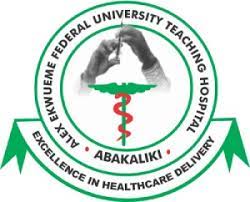
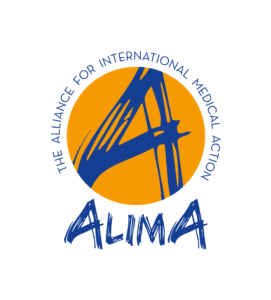
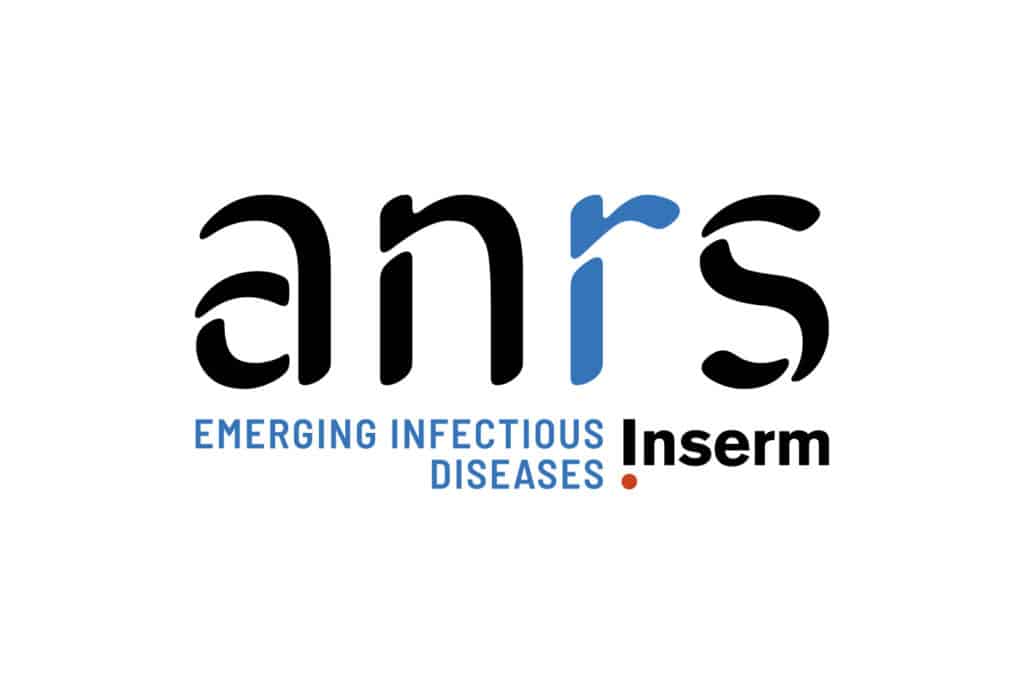
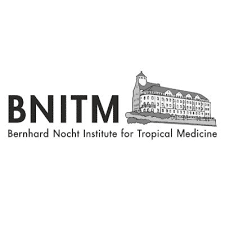


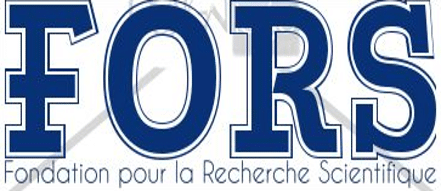

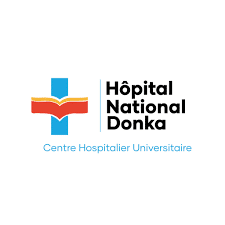


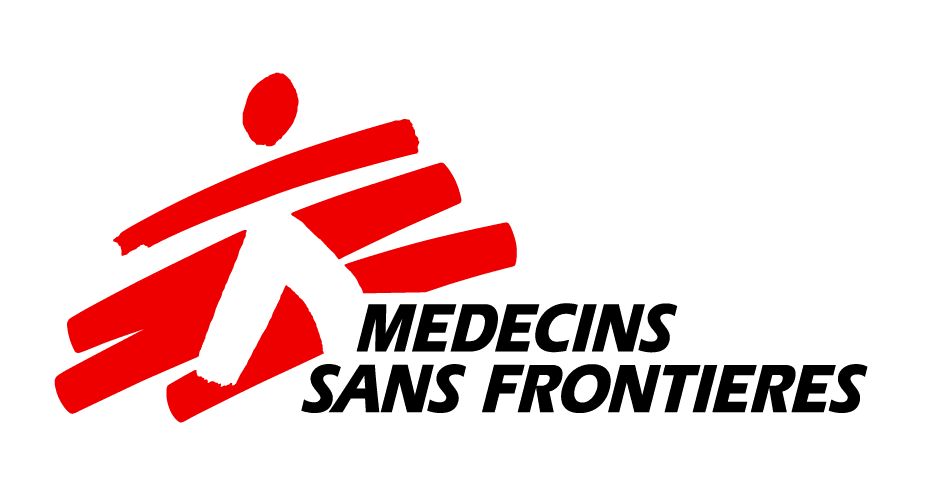


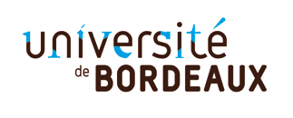

















The INTEGRATE project Grant Agreement No 101103204 is supported by the Global Health EDCTP3 Joint Undertaking and its members.
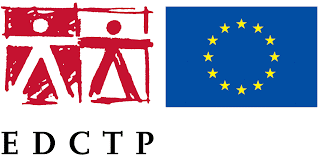
For any requests
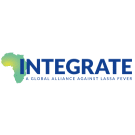
camille.fritzell@coral.alima.ngo
Our research programs
On the ground
Our related news
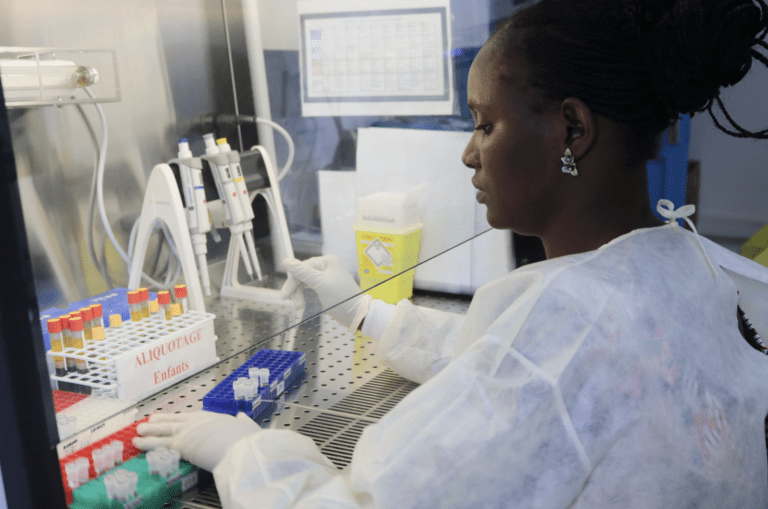
Breakthrough in Ebola Vaccination: Five-Year Immunity Achieved After Injection
A decisive new step has been taken in the fight against the Ebola virus. According to a PREVAC study conducted in Guinea, the immunity conferred
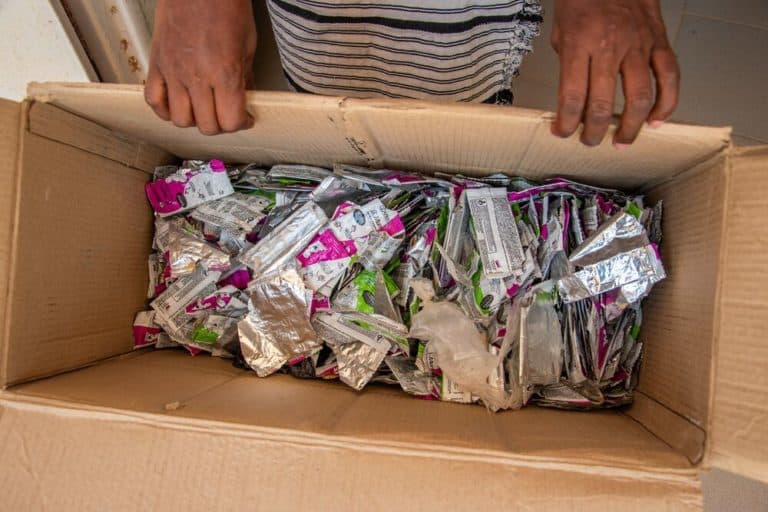
The Plastik Project Revolutionizing Medical Waste Management in Burkina Faso
The waste of two essential items in the healthcare and nutritional response in sub-Saharan Africa poses significant environmental pollution. How can their impact be minimized?
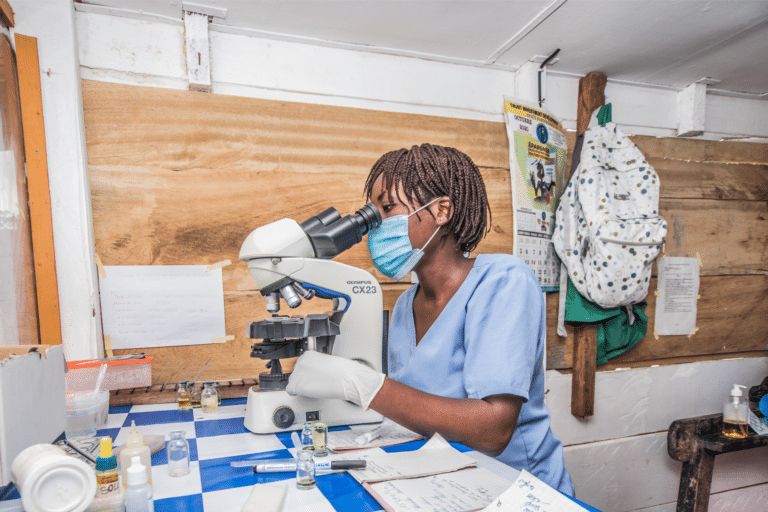
“Researchers and Humanitarians”: Discover Our New Web Series
Collaboration between researchers and humanitarians is key to transforming medicine in Africa. Our new web series explores how these professionals are working hand in hand
